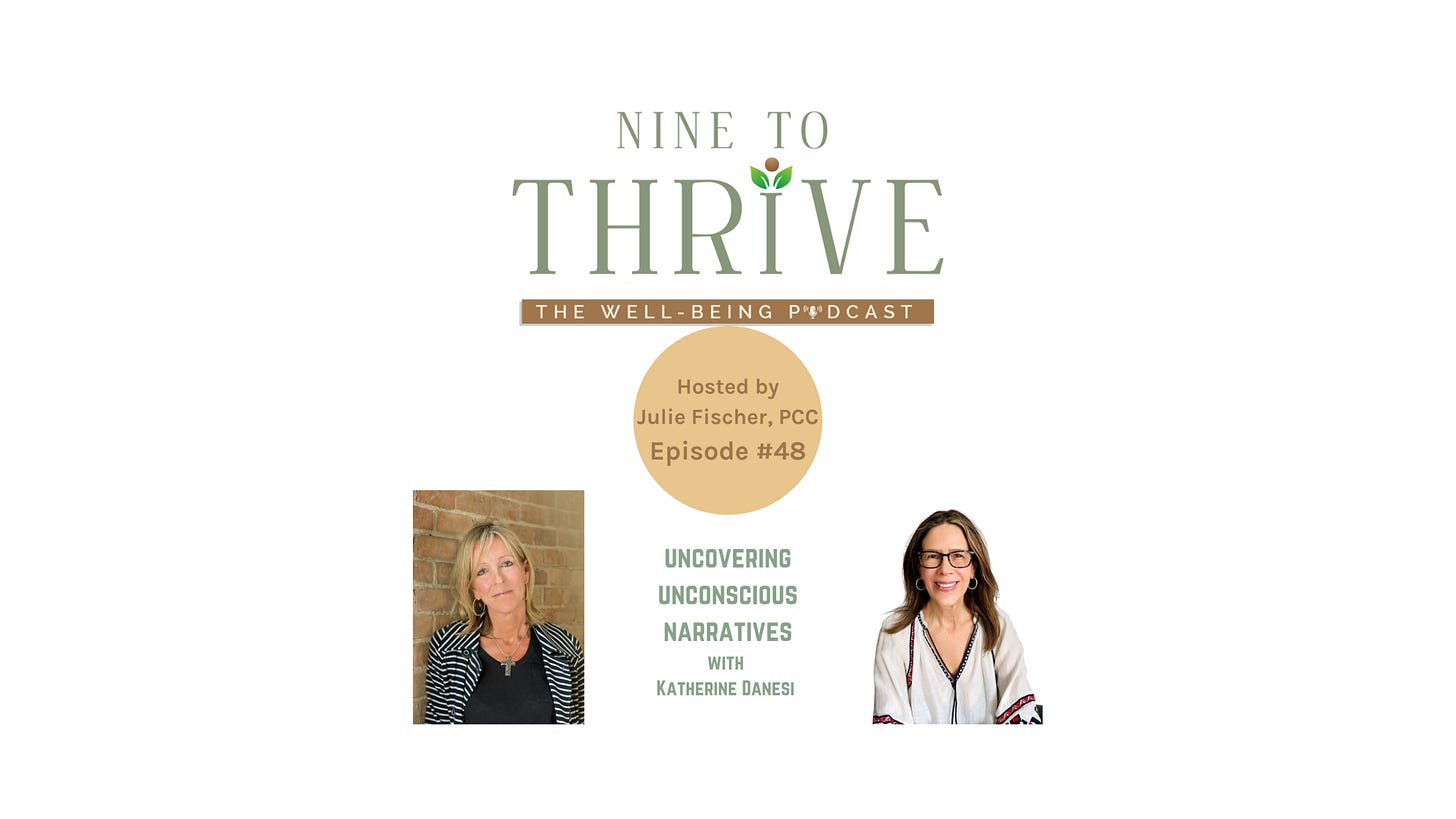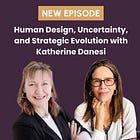Unravelling unconscious commitments
What you don't know may be holding you back.
Last month, I wrote a post about things we may be clinging to without our conscious awareness. It could be habits, ideas, beliefs, just about anything.
I started by sharing a story about getting a new laptop earlier this year and yet finding myself unconsciously sticking with the adaptive habits I’d adopted to make the old laptop work. This realization hit me “like a ton of bricks” and got me thinking about the other ways we all do this, which I explored in the article.
The newsletter caught the attention of my friend and fellow coach Julie Fischer. Julie and I met a few years ago in a networking group for fellow entrepreneurs. In the years since, we’ve both evolved our businesses in terms of whom we’re serving and how we’re doing so.
One major initiative that Julie undertook since we first met was launching Nine to Thrive: The Well-Being Podcast where she explores what it means to thrive and flourish in this increasingly fast and complex world in which we live.
It was with the podcast in mind that Julie reached out after receiving that weekly email. Did I want to dive deeper into the topic of unconscious commitments with her on Nine to Thrive? You betcha.
Because as Carl Jung suggested:
Until you make the unconscious conscious, it will direct your life – and you'll call it fate.
What we covered.
Our conversation was fascinating and reawakened ideas that have been rumbling around in my head for months (if not years).
My suggestion? Listen to the entire episode — because the importance of this topic cannot be overstated. Truly.
Here’s a summary of our conversation:
What are Conscious Desires vs. Unconscious Commitments?
“Having is evidence of wanting.”
Why you have unconscious commitments and where they come from.
The gap between “want” and “willingness”.
Why you have want but lack willingness (and why it can be hard to become truly willing).
How you can uncover your hidden narratives.
How you can move from Unconscious to Conscious.
Making unconscious narratives conscious is essential for thriving. It allows for greater awareness and authenticity, vulnerability in relationships, forward movement toward goals, and clearer vision of purpose.
Resources we discussed.
Julie and I have both explored this topic in various ways and mentioned a few of the following in our conversation.
I’m sharing them here should you want to dive deeper:
Conscious Leadership Group (website) and The 15 Commitments of Conscious Leadership: A New Paradigm of Sustainable Success (book)
The Work of Byron Katie (website) and Loving What Is: Four Questions That Can Change Your Life (book) — a simple process that’s not easy, but hugely impactful
Existential Kink by Carolyn Elliott, PhD (book) — the quote above, “Having is evidence of wanting,” is pulled from it, which I’m reading and working through the exercises now
Internal Family Systems (website) and No Bad Parts by IFS founder Dick Schwartz — a life-altering way to look at and be with yourself
This is important work.
I realize that this week’s email has veered toward the esoteric and is perhaps seemingly off-topic for Business/Women.
And yet, I believe that Carl Jung issued a potentially life-changing challenge to all of us. This is perhaps the most important work we can do to enrich our lives and create thriving, consistently profitable businesses.
I hope you take up the challenge.
Until next time,
Katherine
#ICYMI









As you noted incredibly important and impactful work for all facets of life. Looking forward to listening.